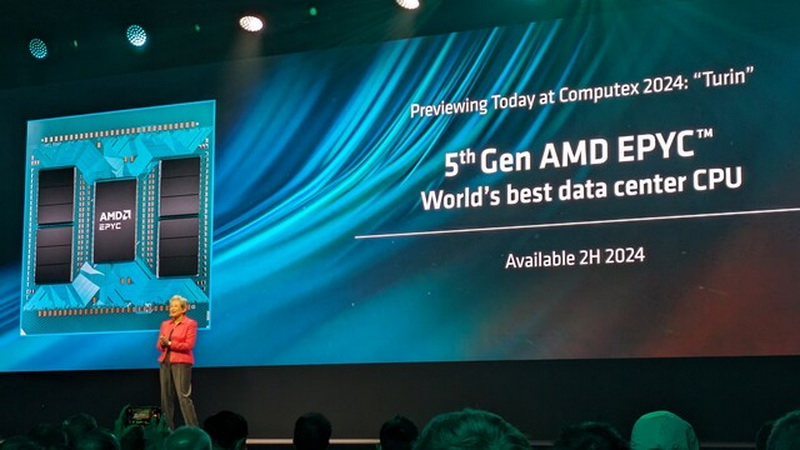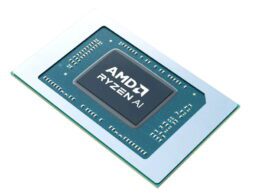In the recently concluded Computex 2024, AMD announced details around its upcoming fifth-generation EPYC server processors – Turin and Turin Dense. Besides showcasing its desktop processors Ryzen 9000 and mobile Ryzen AI 300, AMD revealed details about the core count of these server processors and the platform they would function on.
Succeeding the EPYC 9004 (Genoa) chips, the EPYC Turin processors will offer up to 192 computational cores based on the Zen 5 architecture, supporting up to 384 virtual threads. Comparatively, the Genoa processors offer 96 cores, half of what’s offered by Turin. Same as the predecessor, Turin will use the SP5 socket, reducing upgrade costs. It’s speculated that like Ryzen 9000 desktop series, Turin will also stand out for supporting high-speed RAM. However, AMD did not officially disclose any details about this.
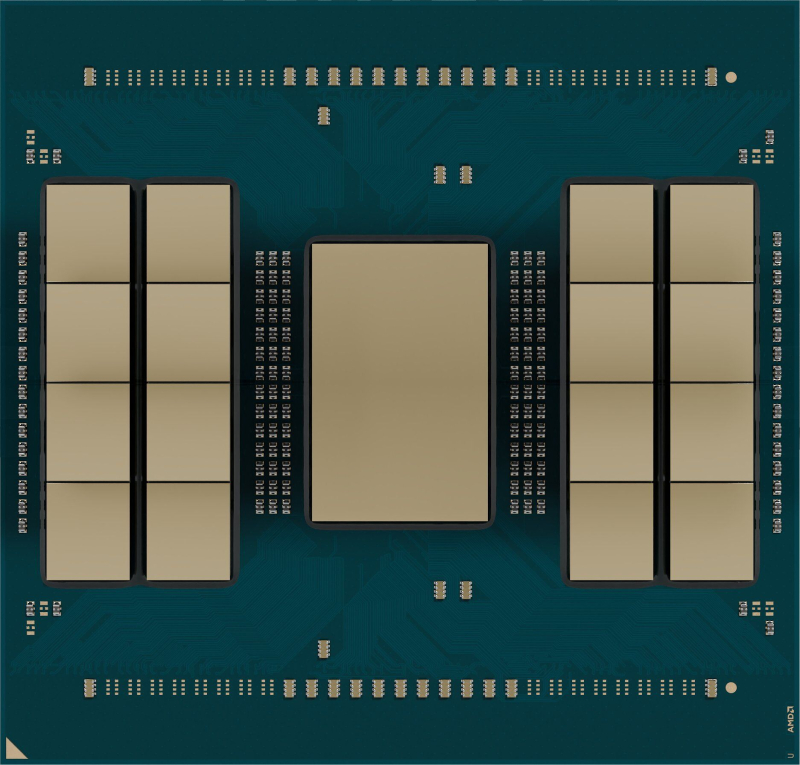
AMD’s illustration provides insights into Turin’s processor structure. Comprising 16 CCD crystals arranged in two rows, each row contains 12 cores. At the center is the I/O Die crystal with input/output interfaces. Structurally, Turin seems superior to Genoa, whose CCD crystals are arranged in three rows, increasing signal transmission distance from the extreme CCD blocks to the I/O Die.
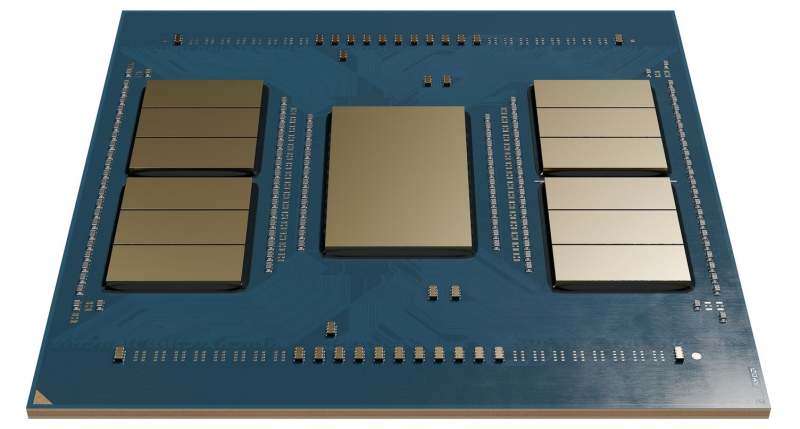
Turin Dense processors, pegged as successors to the Bergamo series, will feature up to 192 Zen 5c cores. In comparison, Bergamo offers up to 128 energy-efficient Zen 4c cores. Turin Dense chips sport a different structure compared to standard Turin. Turin Dense’s CCD blocks are larger, grouped into clusters of three, with a total of 12 CCDs. The Turin Dense will directly rival Intel’s Sierra Forest processors, which are also composed solely of energy-efficient cores.
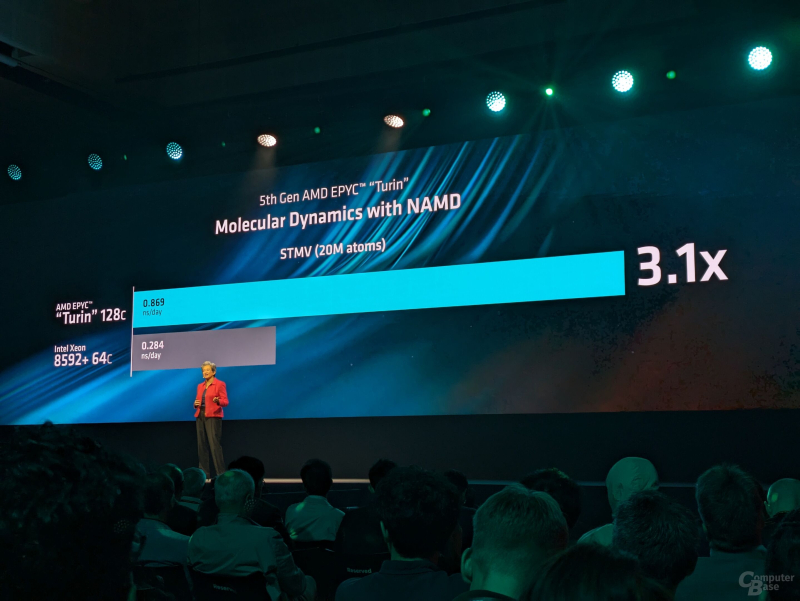
To showcase future processor performance, AMD compared its dual 128-core Turin system against a dual Intel Xeon 8592+ system with 64 cores each. The company highlighted improved performance delivery by its chips in scientific tasks, large language model processing and AI algorithms.
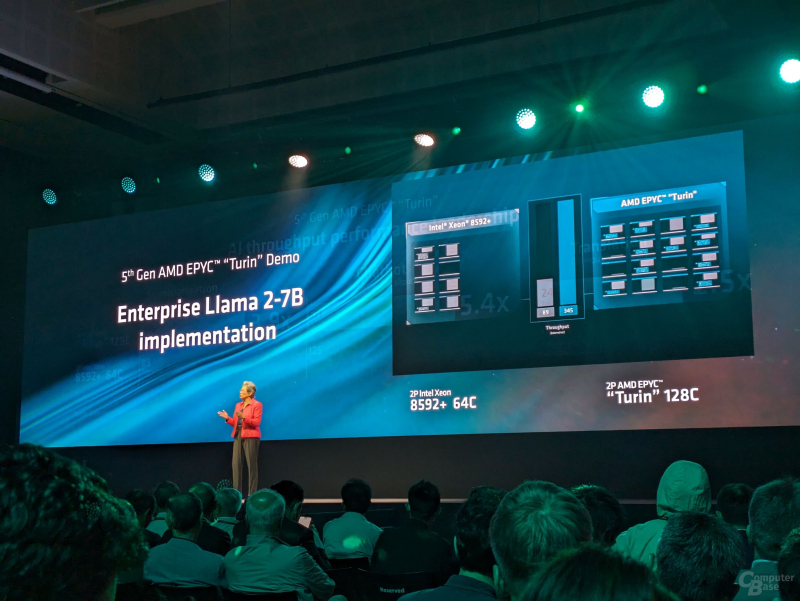
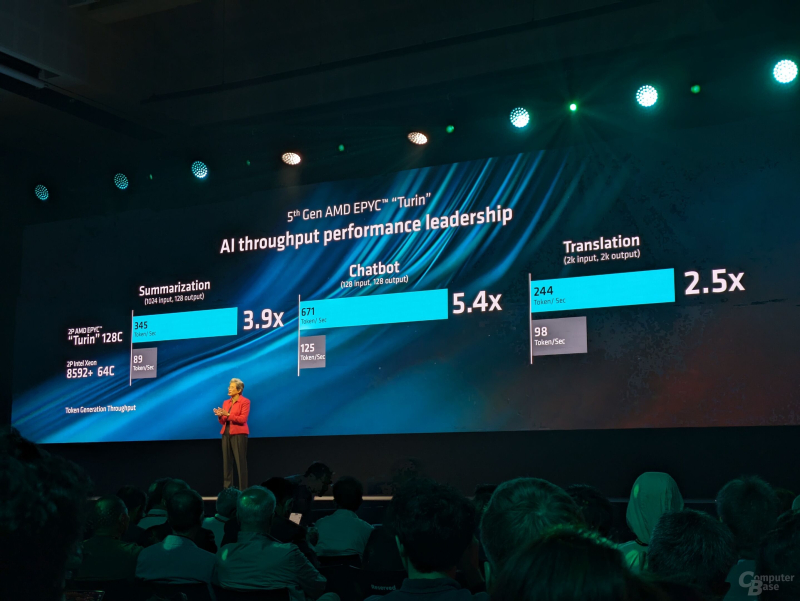
AMD did not specify the release date for Turin and Turin Dense during Computex 2024, only reiterating its previous statement that the new EPYC server chips will be available in the second half of 2024.

